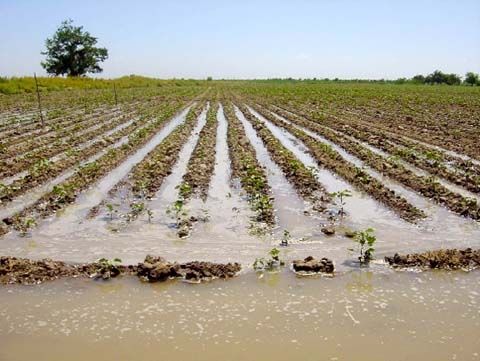ALMATY, Kazakhstan (TCA) — Over 80 experts from five Central Asian countries gathered on November 19 in Almaty to discuss how to improve and modernize irrigation practices in Central Asia. The two-day workshop, entitled Towards Regional Initiatives for Modernizing Irrigation in the 21st Century brought together regional and international irrigation practitioners, experts, policymakers, representatives of research institutions and civil society, the World Bank said.
Irrigation plays a critical role in Central Asia’s agricultural productivity. It is estimated that irrigation modernization across Central Asia could increase crop yields by 20 percent over the next decade and up to 50 percent by 2050: without modernization crop yields could decline by up to 10 percent.
Efficient irrigation practices can also lessen the burden on water resources. This is especially relevant for Central Asia, as the region comprises five of the top nine least water productive countries in Europe and Central Asia. If current water management policies and practices persist, water scarcity could lead to a significant slowdown in Central Asia’s economic performance.
“We need robust and innovative strategies to improve irrigation practices in Central Asia,” said Jean-Francois Marteau, the World Bank Country Manager for Kazakhstan. “I hope this forum will generate new ideas, bring solutions and stimulate actions for better water and food security in Central Asia.”
“Irrigated agriculture in the region still does not fully utilize its economic potential with low yields and underdeveloped value chains. We need to provide improved irrigation services to our farmers by increasing the capacity of irrigation organizations,” said Mr. Arman Turlubek, Chairman, Committee for Water Resources of Kazakhstan.
The event represented a significant milestone, bringing together – for the first time – regional irrigation players for peer-to-peer learning, knowledge exchange and collaboration.
The event was organized by the Central Asia Water and Energy Program (CAWEP) and Global Water Security and Sanitation Partnership. CAWEP is a multi-donor trust fund established by the World Bank to strengthen the enabling environment to promote water and energy security at the regional level and in the beneficiary countries.
CAWEP is funded by the European Union, Switzerland (through SECO) and the United Kingdom (through DFID). The trust fund also convened a regional event in Tashkent to discuss best practices for building climate-resistant water supply and sanitation services last week.



